Tips For Successful Applications
We understand that getting a new job can be a bit nerve-racking and so we have prepared these tips for success to give you a helping hand.
Good luck!
Please remember to tell us if you have any specific requirements that you need us to consider to enable you to take part in the application or interview process. We will happily accommodate these for you.
How to Get Shortlisted for Interview
Tips on Success - Live Video Interviewing
How to Get Shortlisted for Interview
If you want to get an interview you need to complete a successful job application.
All job applications should be made via our online e-recruitment system. Unfortunately we can’t accept speculative CVs unless otherwise stated on the advert.
You should complete all the sections fully as this is the basis for selection for interview.
Give yourself time to prepare
This will make the task much easier and less stressful. Check the closing date on the advert and don’t leave it to the last minute to complete your application. Leave time to resolve any technical issues you may encounter. Gather all of the information that you will need to complete your application. You will need to include details of your academic achievements, employment history and full contact information for your referees.
Complete all sections of the application form in full
Sections on our application form include personal information, such as your name and contact details, your educational background, and work experience. Please read the information contained in our Completing an online Application for detailed guidance. Complete all sections fully and answer all questions honestly. You may be asked about the answers that you put on the application form in a later interview.
Understand the role
It is important that you have a full understanding of the role that you are applying for. We provide a copy of the Job Description and Person Specification. Have this in front of you when you are completing your application. This will give you a full understanding of what the role is about and what we are looking for in a candidate. Contact the ‘recruiting manager’ if you need more clarification about the elements of the job - their contact details are usually shown on the job advert. Alternatively, you can email recruitment@ashford.gov.uk.
Match your skills
You will need to demonstrate on your application how well you are qualified for the job you are applying for. The more closely you can demonstrate your match to the role the more likely you are to be shortlisted for interview.
Make the most of the supporting statement
This section gives you the opportunity to convince us that you should be shortlisted for interview. Please say why you wish to be considered for this position and include the particular abilities and skills you possess (referring to the job description and person specification). Don’t just say that you can do something, include examples of how and where you have completed these tasks or demonstrated these behaviours. Try to explain any statements you make by giving specific examples of achievements and experience. This can be your employment experience, educational background, voluntary work or spare time activities.
Keep it relevant
It is important to emphasise the skills and experience that are relevant to the job you’re applying for. Skills and experience that aren’t related to the job description or person specification should be left out, or only briefly mentioned.
Next Steps
The shortlisting panel will decide who to shortlist for interview on the basis of a pre-determined shortlist matrix. This will be carried out against the application you have submitted.
Candidates will be advised within two weeks of the closing date of the job advert if they have been successful or not in securing an interview.
Tips for Success – Interviewing
The purpose of the interview is designed to assess whether your skills match the skills that we are looking for in the ideal candidate. All candidates will be asked a number of pre-determined interview questions, each focusing on a specific skill. Your answers will be compared against pre-determined criteria and marked accordingly.
Interviews will be held face to face or through a live video link.
Prepare for a competency - based interview
Competency links your knowledge, skills and how you handled a situation or a task. You will be asked questions at your interview about your previous experiences in specific circumstances. We will be looking at how you handled the situation or the task. For example, there may be a requirement for you to be a `good team player’. In this instance you could be asked a question around this area such as: “Tell me about a time when you have worked well as part of a team?.” With all competency based questions you should be prepared to tell us what the situation was, what you did and what the outcome was.
Be ready for an interview panel
The interview panel will be made up of officers who will be interacting with the successful candidate on a day to day basis. This will include the recruiting manager (who is generally the line manager) plus other key employees. Panels are usually made up of up of two or three people.
Think about what the questions will be
You can easily work out what areas the questions will be based around if you look at the tasks listed on the job description and the criteria or behaviours listed in the person specification. Before the interview think about experiences where you have undertaken these tasks and where you have demonstrated these behaviours in actual events so that you can more easily recall these events at interview. If, for example, you are a good communicator and this is listed as an essential requirement on the person specification then have in mind an example of when you had to use your communication skills. For example: “I have good communication skills and an example of this is that I managed to persuade my group to ….”
This way, you will be prepared if you are asked to explain a specific circumstance of when you demonstrated a particular skill or ability.
Tell us about your strengths
Think about what strengths you have that match the job description and person specification. Prepare some key selling points, with some examples to back them up, before the interview.
Think about the reasons why you want this role
It is always good to be prepared with an answer about why you want the role you are being interviewed for. Think about what interests you about the role and how you feel you will be rewarded in terms of job satisfaction. Also think about what skills the job requires that you already have yourself. Enthusiasm and passion always shines through.
Re-read your application form
It is really important to keep a copy of the information that you have already provided in your application form. You may be asked to clarify or explain in more detail about a specific example that you have already written about. It’s a good idea to re-read it before the interview so you can remember what you said.
Think about your body language and clothing
It is important to be aware of your own body language and to dress appropriately for the role you are being interviewed for. Making eye contact with the person that is addressing you is important. Being comfortably but professionally dressed will also put you in the right mind-set. If there is a requirement for you to carry out a site visit on the day then you will be advised to wear appropriate clothing or footwear.
Prepare some questions for your interviewer
It is important to prepare some questions for your interviewer. This will demonstrate that you are genuinely interested and it will give you a better understanding of the job. Remember, the interview is an opportunity for you to find out as much about the role and about working for us. It is your responsibility to ask for clarity – if you need it – and to ask any questions if there is something you want to know more about.
Tips on Success - Live Video Interviewing
Live video is similar to a face-to-face interview. Interviews will be carried out in real time over a video connection using Microsoft Teams. It is best to treat the video interview like an in-person meeting.
Choose Your Location
Make sure you choose a quiet space for your interview, free from distractions. Think about your background and, if possible, choose a simple background where you are not in front of a window. Natural light, coming from in front of you is best. There is also an option when you join the Teams meeting for you to ‘blur’ the background behind you so that it’s only you that is seen.
Dress appropriately for the Interview
The video interview should follow the same rules as a face-to-face interview. You should wear the same outfit as you would have chosen should you have been going into the workplace.
Avoid any potential interruptions and technical issues
Ensure that equipment is fully charged and take time to test out the software and familiarise yourself with it. Carry out a trial run to make sure all is in order and test that your microphone and webcam is working. If you do have an unexpected technical problem, let the meeting organiser know as it may easily be fixed. Alternatively, the meeting organiser can end the call and redial.
Awkward interruptions that interfere with the smooth running of your interview are best avoided as much as possible. If you can then turn off email, text and social media alerts, software updates and other notifications that may show up on the screen during the meeting.
Ensure that other household members around you are aware that you are having an interview. The last thing you want is someone on the telephone, playing loud music or coming over to see you mid-interview. Saying that, we understand that sometimes real life interruptions can happen.
Talk to your webcam
Eye contact is important in any kind of interview, but video calls make it a lot harder to follow. If you look directly at the screen, the other parties will see you looking at something, but not at them. In order to maintain good eye contact, you will need to focus on looking directly at the camera instead.
Don’t forget there could be a slight delay in transmission, so be mindful that you will need to pause more and this will assist with any potential lag.






